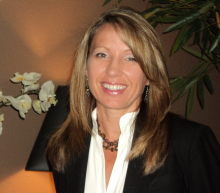Fighting PTSD With Virtual Reality
For more than a year, 1st Sergeant Doug Hester, saw, heard and was even able to smell the horrors of war.
“Any time I smell diesel fuel, it brings me right back,” said Hester.
When Hester returned from his tours in Iraq and Afghanistan, he was diagnosed with Post Traumatic Stress Disorder, commonly known as PTSD.
“Severe anxiety! If I was in crowds of people, I would really kind of freak out,” said Hester.
But now, a virtual reality therapy has provided relief for some patients suffering from PTSD.
As part of the treatment, patients are immersed in life-like war scenes through virtual reality simulations.
“We have to get them to understand that the only way to get over that fear is approaching it,” said Deborah Beidel, a psychologist at the University of Central Florida in Orlando.
Beidel says virtual reality is a powerful tool to use with exposure therapy, allowing patients to cope with their traumatic memories in a safe environment.
“We know that the more realistic we can make the recreation, the better it will be for the person to get over the traumatic event,” Beidel said.
The scenes are enhanced with realistic sound effects and some even have small special effects. Fans are used to blow scents ranging from body odor to trash to diesel fuel, making the scene more realistic and exposing more possible PTSD episode triggers.
“What we know about memories that are associated with smell is that they are very intense memories, and they are acquired very, very quickly, so they’re very emotional memories,” said Beidel.
After an intense three-week period of virtual reality therapy, researchers found that more than half of the patients reported no more PTSD symptoms.
"I don’t scan rooms any more for threats. I’m not fearful for going into public places,” said Hester.
The Department of Defense funds the UCF program. The UCF team has provided treatment for about 80 active duty personnel and veterans who have served in Iraq and Afghanistan.
Get Inside The Science:
University of Central Florida Clinic Treats PTSD Using Virtual Reality
Deborah C. Beidel, University of Central Florida

